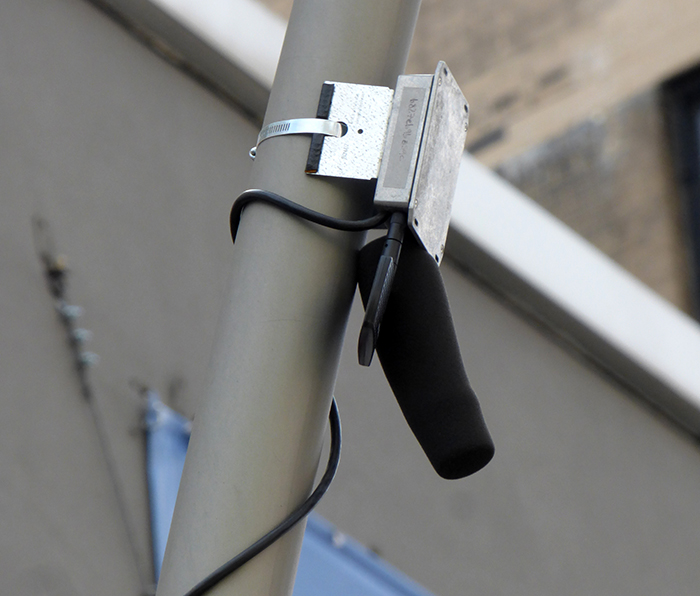With noise pollution a top source of 311 complaints, Brooklyn startup ‘listens in’
Smart sensors in Downtown Brooklyn could ID offenders

NYU’s startup Sounds of New York City is developing an acoustic sensor network and installing it on lampposts along Fulton Street. Show above is one of the nearly foot-long microphones which will be picking up sounds on Fulton Street. Photo by Mary Frost
The rumble of buses. The jubilant hallelujahs of gospel music. The loud grind of jackhammers. The high-pitched crying of babies.
High over Fulton Street in Downtown Brooklyn, foot-long microphones are being installed, which will pick up and analyze the neighborhood’s potent mix of sounds, allowing the city to move towards the automatic identification of noise polluters.
The sensors, attached to lampposts, are the result of collaboration between Downtown Brooklyn Partnership and local tech startups, which are working to bring “smart city” technology to Brooklyn’s booming commercial center.
